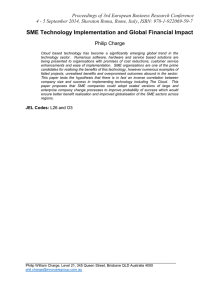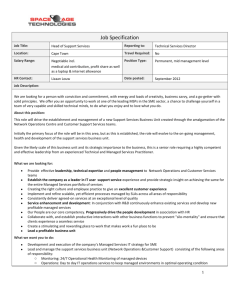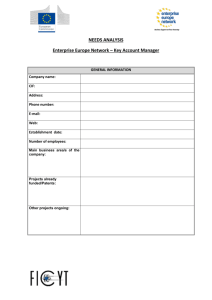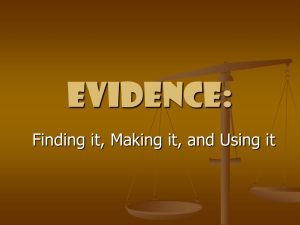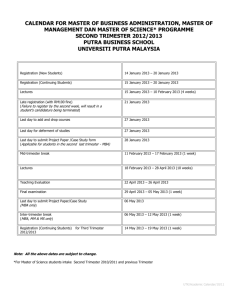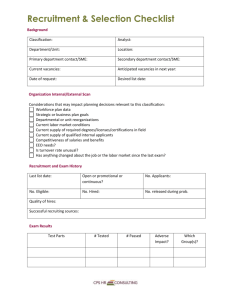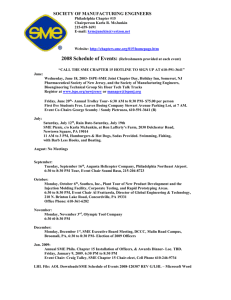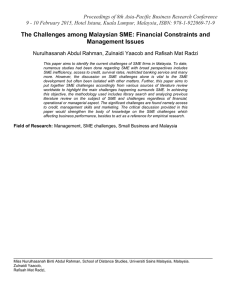ELECTRONIC COMMERCE Objectives and Methodology FIRST TRIMESTER. ACADEMIC YEAR 2010-2011
advertisement
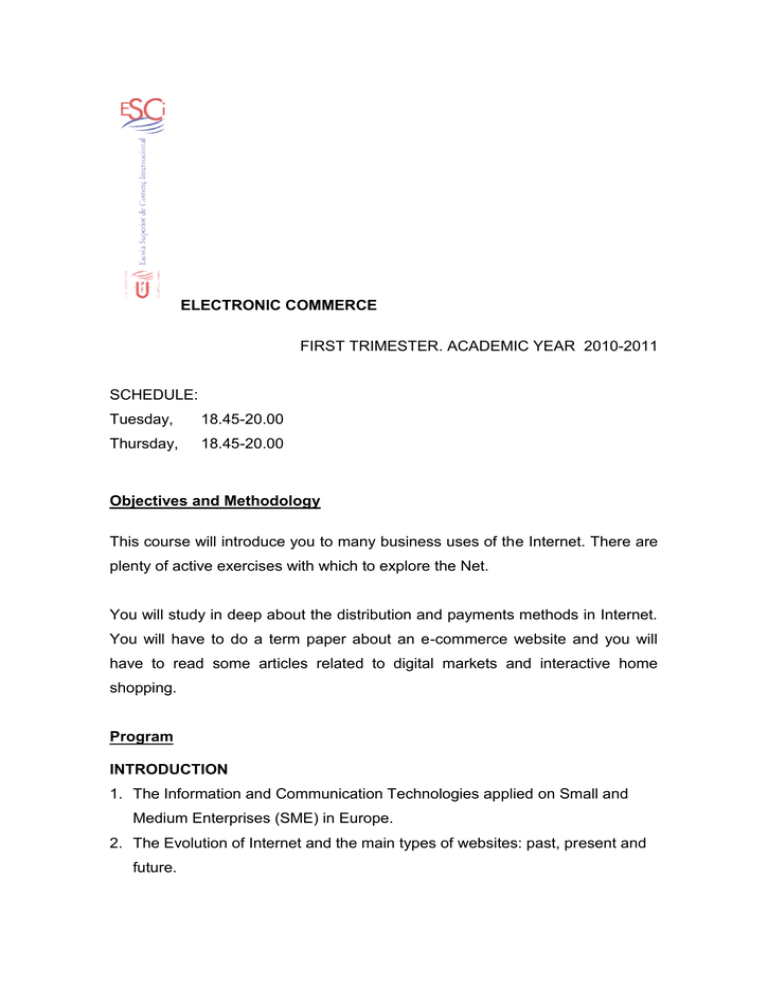
ELECTRONIC COMMERCE FIRST TRIMESTER. ACADEMIC YEAR 2010-2011 SCHEDULE: Tuesday, 18.45-20.00 Thursday, 18.45-20.00 Objectives and Methodology This course will introduce you to many business uses of the Internet. There are plenty of active exercises with which to explore the Net. You will study in deep about the distribution and payments methods in Internet. You will have to do a term paper about an e-commerce website and you will have to read some articles related to digital markets and interactive home shopping. Program INTRODUCTION 1. The Information and Communication Technologies applied on Small and Medium Enterprises (SME) in Europe. 2. The Evolution of Internet and the main types of websites: past, present and future. THE DIGITAL MARKETING PLAN 3. Introduction to the Digital Marketing Plan 4. Setting of main objectives - General goals - Target markets - Target audience 5) SME presence analysis on the digital markets 8) Creation of visit attraction: - Search Engine Optimization (SEO) - Online Public Relations - Search Engine Marketing (SEM) - Other digital promotion tools 9) Visit-to-lead conversion - Usability - Persuasion 10) Lead-to-customer conversion -Customer Relationship Management SOCIAL MARKETING STRATEGIES: WEB 2.0 12) Introduction to social marketing - Definition and basic terminology - The evolution towards the social web - Relevant information about web 2.0 for SMEs 13) The social marketing strategy within the framework of the digital marketing plan 14) The digital identity 15) Tools and solutions for the SME - Social networks - Blogs -Wikis - RSS - More tools… 16) SEO strategies using Web 2.0 17) Online Reputation Management RETURN ON INVESTMENT MEASUREMENT TOOLS 18) Available software 19) Instructions on the use of statistical software Recommended Bibliography: There is not an specific guide or manual for this course, At each module internet addresses and manuals will be provided to complement each lecture. ELECTRONIC COMMERCE FIRST TRIMESTER. ACADEMIC YEAR 2010-2011 The final mark of the course “Electronic commerce” will be calculated on the basis of the following factors, that shall be weighed as described below: Final Exam: 40% Term paper: 40% Presentation, class participation, and virtual lectures: 20% September exam: Final Exam: 80% Presentation, class participation, and virtual lectures: 20%

